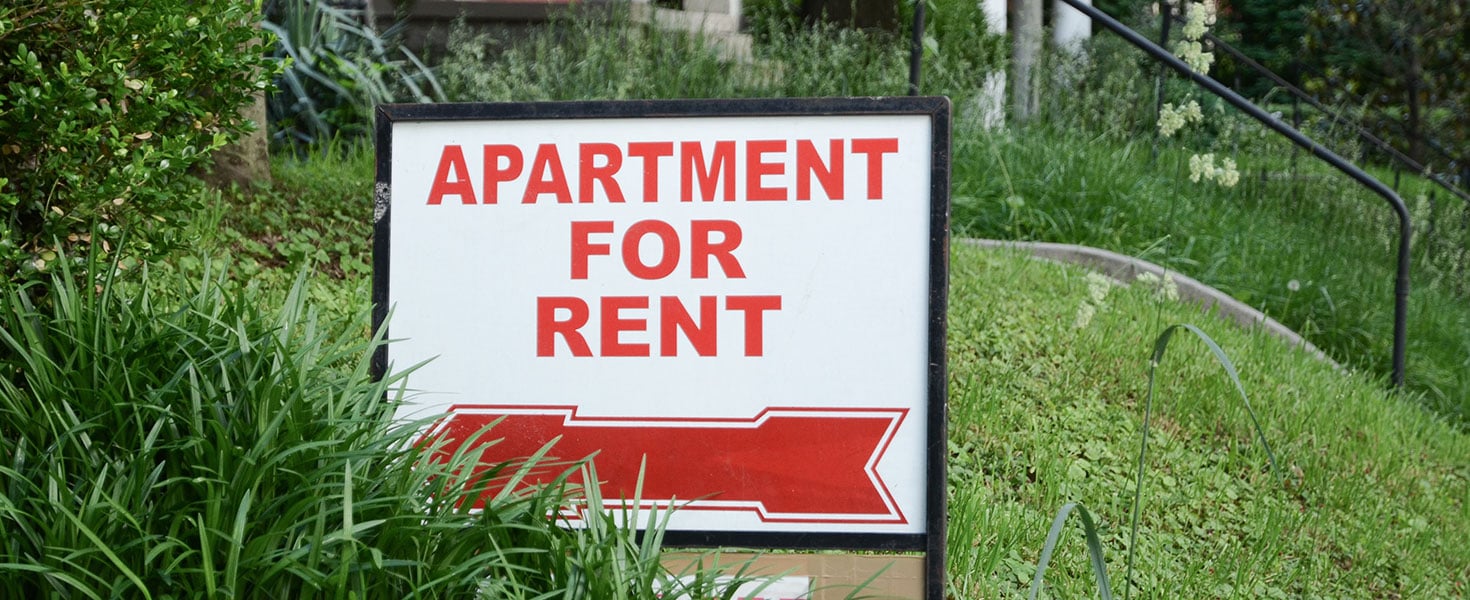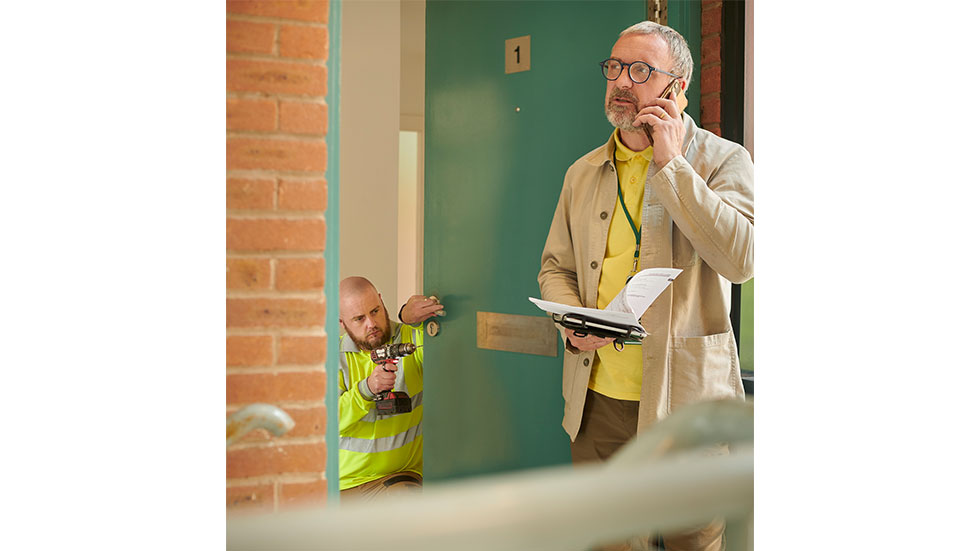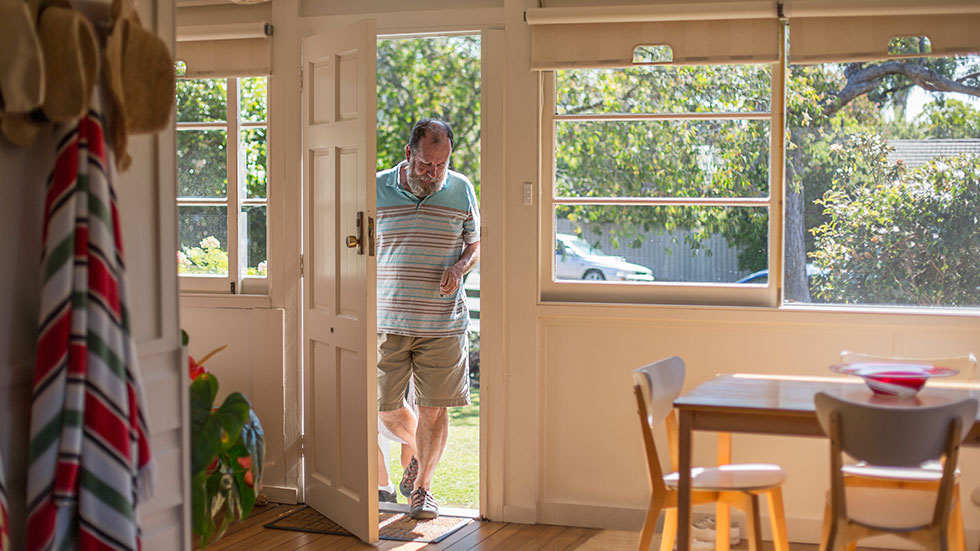

There are specific circumstances when a landlord is allowed to enter a residence, but there are legal requirements and rules limiting what they can and cannot do, in order to protect the tenant's right to privacy in their unit.
Laws vary by state, but here are some general rules and regulations about when a landlord can enter a rental property.

WHEN CAN A LANDLORD ENTER MY APARTMENT?
Most of the time, a landlord cannot legally enter a tenant’s apartment without their explicit permission. There are some situations when a landlord can enter a tenant's apartment, though most reasons relate to maintaining the property or ensuring safety. Note that depending on your state, landlords may need more than just a valid reason. For example, they may have to prove other conditions are met to ensure your right to privacy, such as giving advance notice (such as 24 hours prior to entry).
In general, a landlord can enter an apartment for issues directly related to the unit such as maintenance, sale of the property, or when granted by a court order. Some examples of situations when a landlord can enter your apartment include:
- Addressing an emergency situation
- Investigating a health or safety concern
- Inspecting damage or assessing problems that may require repairs
- Handling any repairs, improvements, or alterations to the property
- Providing a tour to a prospective buyer or new tenant
- Allowing a mortgage representative or insurance agent to assess the property
- Investigating rent or lease violations
- Delivering a large package (if given prior permission)
- Completing an inspection when a tenant is moving out
- Issuing an eviction notice or when the tenant has abandoned the premises. Obviously, landlords can also enter your apartment if you’ve given them permission or invited them to do so. Check your apartment lease for additional situations.
Other than the above circumstances, in most cases a landlord cannot legally enter your apartment, even if they give notice. The reason for entry must be justified. Otherwise, it could be an illegal landlord action that could get them in legal trouble. Again, it’s best to review your local and state laws, as well as your lease, to know your rights and entry rules.
DOES A LANDLORD HAVE TO PROVIDE NOTICE BEFORE ENTERING AN APARTMENT?
This varies by state, but in most cases, landlords cannot enter an apartment without providing reasonable or advanced notice, even in the examples listed above. Most of the time, this notice needs to be in writing. Typically, they must provide a notice of 24 to 48 hours, depending on the situation. The exception is if your landlord is responding to an emergency, such as a suspected gas leak, burst pipe, fire, or similar situation. In this case, they may not have to provide any notice and can make immediate entry.
Notice requirements may also be lifted for extermination, regularly scheduled maintenance, for abandonment of the unit, or under court orders.
Regardless of the situation, the landlord must still announce him or herself and the reason for needing access, prior to entering the rental unit.

CAN A LANDLORD ENTER AN APARTMENT AT ANY TIME OF DAY?
In most cases, no. Even if a landlord provides notice, they can’t come to your door at any time of day or night. In most cases, they are only able to enter an apartment during normal business hours, such as Monday through Friday, between 9:00 a.m. and 5:00 p.m.
Again, there are exceptions, such as emergency situations. Generally, they must tell you when they are coming (or at least provide a window) and it must be a reasonable time of day.
WHAT CAN A LANDLORD DO IN MY APARTMENT?
If your landlord does have to enter your apartment, they must only perform the actions related to the specific circumstance. They cannot go through your belongings or spend more time than necessary in your apartment. That said, they do have the right to interact with your belongings if necessary, such as moving something out of the way to complete a repair.

WHAT TO DO IF A LANDLORD ENTERS YOUR APARTMENT ILLEGALLY
If your landlord enters your apartment without cause or proper notice, you’ll want to document the situation and contact the landlord about it. Be calm and only state the facts. If this does not fix the problem, you can send a certified letter to the landlord outlining the illegal entry, including the date and any pertinent details. You can also include references to local law that prove the entry was illegal.
Your other option is to contact your local housing authority. In drastic cases, you can sue your landlord in small claims court. Keep in mind that in these cases, you’ll need solid, documented evidence of illegal activity.
